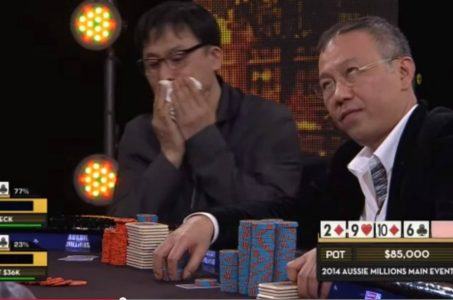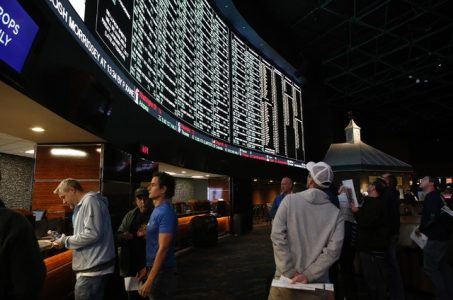Texas Racetracks Bets are Off Following Standoff with Legislature
Posted on: September 2, 2015, 01:48h.
Last updated on: September 2, 2015, 01:51h.

Texas racetracks may not have lost the race yet, but their odds are not looking good. The Lone Star State’s horse and dog racing tracks remained closed to bettors on Wednesday due to an ongoing funding dispute between the Texas Racing Commission (TRC) and the state’s legislature.
Despite reports to the contrary from some news sources, parties failed to reach an agreement before the Monday evening ultimatum set by the Commission, which means, for the time being at least, all bets are off, literally.
The dispute centers on the Texas legislature’s decision to withhold $1.5 million of the TRC’s annual funding. That move is in protest of its plans to expand gambling at tracks, chiefly in the form of “historical racing machines,” which effectively allow bets on recordings of past races.
In November, the TRC lost a legal fight to install the machines at racetracks in the Lone Star State, and, as a result of that ruling, began the process of erasing all mention of historical racing machines from their regulations.
“Rogue Agency”
However, last week TRC commissioners voted 4-3 against removing these references, a provocative move and one that exceeds its authority, according to lawmakers. The commission has been accused of “picking a fight” with the legislature, while State Senator Jane Nelson (R-Flower Mound), chair of the Senate Finance Committee, has called the TRC a “rogue agency” and accused it of defying the state’s constitution.
Meanwhile, the TRC, which regulates all betting at the tracks, claims that the withheld funds prevent it from operating, rendering it unable to pay its rent and executive salaries, and without supervision from the regulator, it says, there can be no betting on races.
On Tuesday, TRC ordered track owners to shut their traps, literally, and cease all operations.
“As a result of the TRC not receiving the required authorization from the Legislative Budget Board to expend administrative funds past August 31, 2015, the Commission must cease all operations, including the oversight of both live racing and simulcast wagering,” read a statement from Lone Star Park Racetrack President and General Manager Scott Wells.
Sympathy in the House
It seems, however, that there is more sympathy in the House for the TRC and the tracks than in the Senate.
“While I understand there are legitimate concerns over the racing commission’s recent actions regarding the issue of historical racing, I believe it’s imperative that this industry remain fully regulated,” said State Representative John Otto (R-Dayton).
Jan Haynes, president of the Texas Thoroughbred Association, meanwhile, said that the legislature had no right to shut down an industry that contributes a large amount of fiscal revenue for the state and employs thousands of people.
“The Lt. Governor and one Senator [Nelson] should not have the power to shut down an entire industry and take away 36,000 jobs,” she said. “The entire Legislative Budget should meet and vote on funding the Texas Racing Commission immediately.”
What Is Historical Racing, Anyway?
Confused by the concept of betting on races that have already been won? So were we. Here’s what we found out:
Also called Instant Racing, the betting typically takes place on terminals that are like slot machines. They can be for both dog and horse racing events already past. Players deposit their wagers on races picked at random from internal video libraries that can hold over 60,000 different already completed events.
Bettors will not have any access to key information, such as when, where, or with what horses or jockeys the race took place. The only guidance for participants are unidentifiable skill graphs that give stats on jockeys’ past wins, without actually naming them.
They then bet on who they think will place in the top three. A “Handi Helper” acts as a kind of random lottery number generator, automating the process for those who don’t want to think too much.
There’s more to it, of course, but you get the general idea.
Related News Articles
Ray Lesniak, New Jersey Not Giving Up on Sports Betting
Super Bowl Shocker: Majority of Bets in US Wagered Illegally
Most Popular
VEGAS MYTHS BUSTED: Golden Gate is the Oldest Casino in Vegas
Las Vegas Overstated F1 Race’s Vegas Impact — Report
Most Commented
-
End of the Line for Las Vegas Monorail
— April 5, 2024 — 90 Comments -
Mega Millions Reportedly Mulling Substantial Ticket Price Increase
— April 16, 2024 — 6 Comments -
Long Island Casino Opponents Love New York Licensing Delays
— March 27, 2024 — 5 Comments
















No comments yet